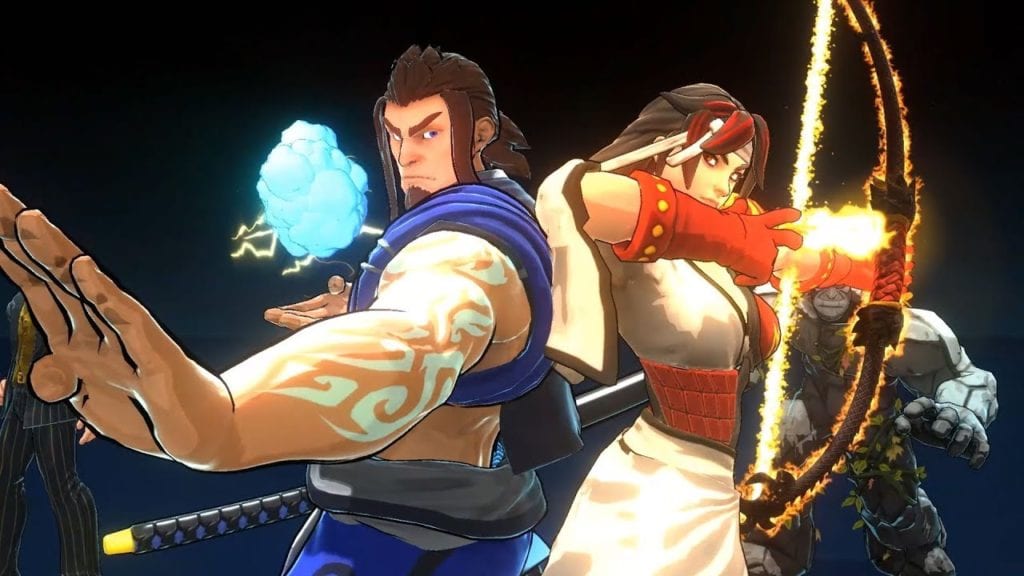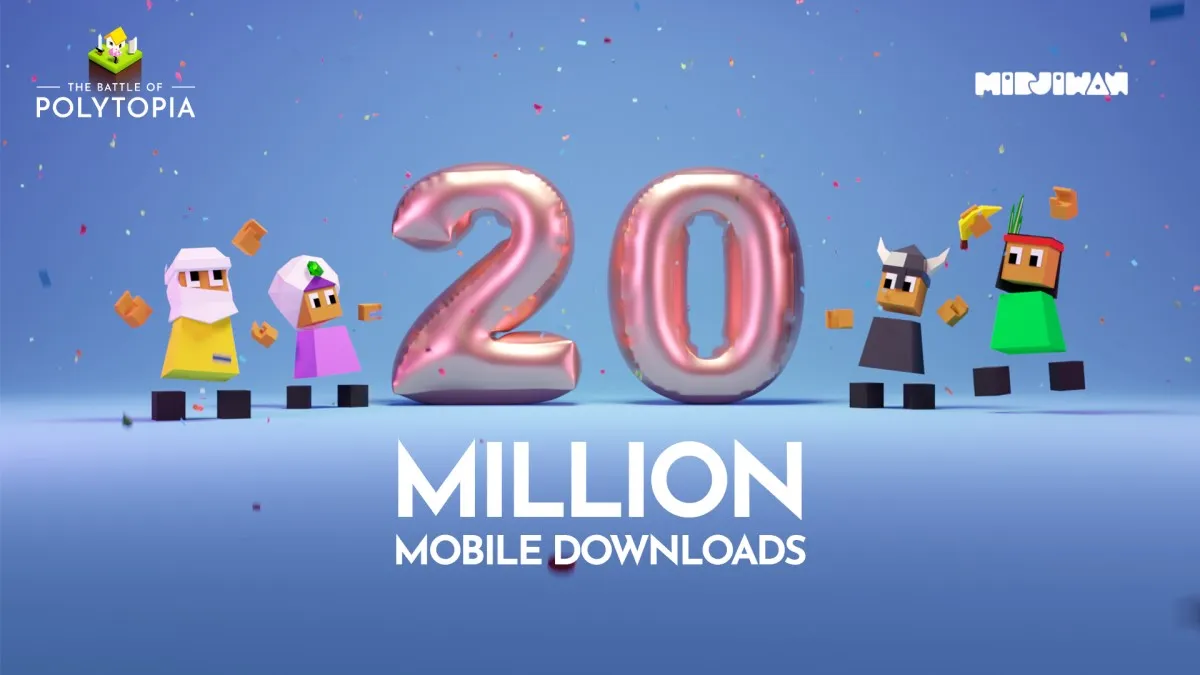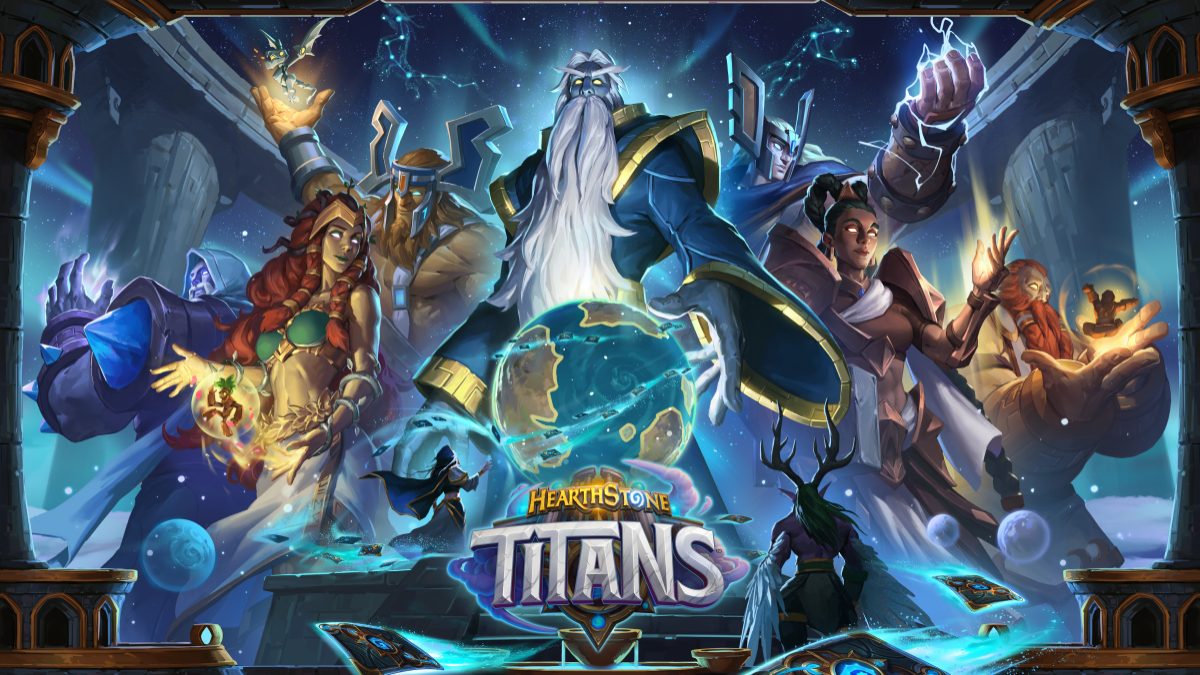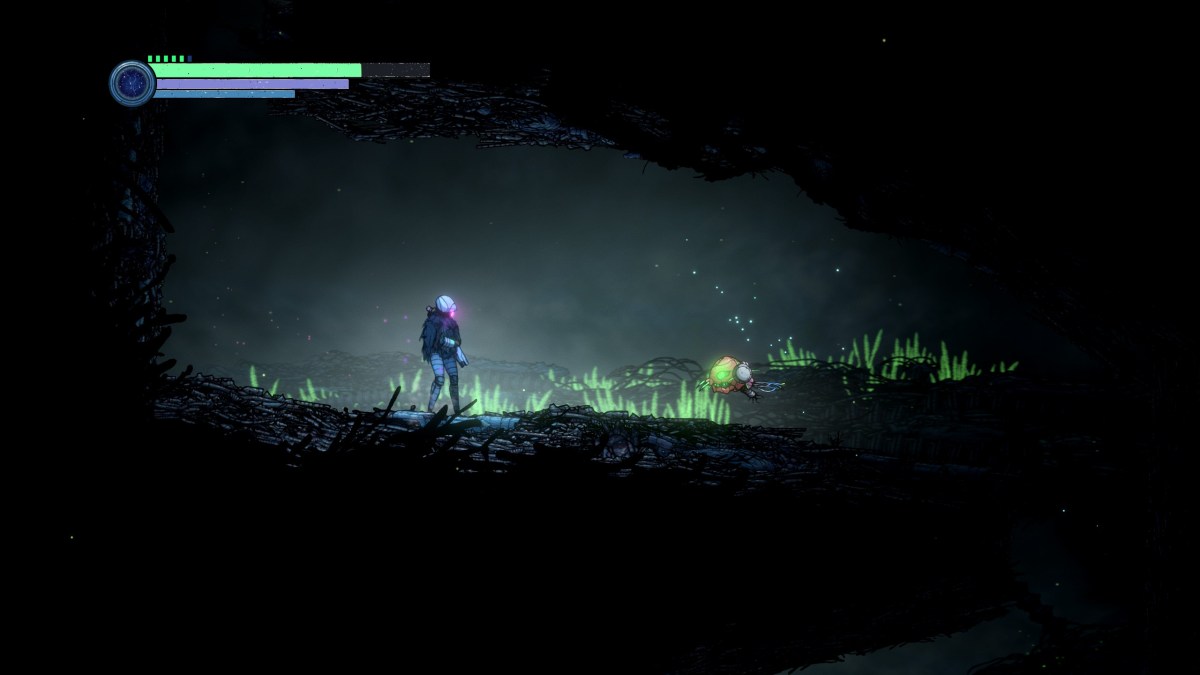In this concluding part of our interview with David Sirlin, the man addresses just how to balance games and why maths doesn’t factor into it, why Resident Evil 5’s competitive multiplayer needs an HD Remix, and some more thoughts on Street Fighter IV. You can check out part one of our interview, which focuses on arcade culture amongst other things.
Considering your lecture at the Game Developers Conference [titled “Balancing Multiplayer Competitive Games”], what do you think of gaming these days?
It seems that that there just aren’t all that many interesting asymmetric games – ones where each player can have really different starting conditions. Fighting games, RTS games, and decks in card games are the most common examples, but not a lot of games even attempt the kind of balance I like.
Could you elaborate a bit?
One type of balance is making sure a game doesn’t degenerate down to a few (or even one) moves/strategies/situations. So, if all the pieces in chess were pointless except the rooks or something, you’d say that’s imbalanced. All competitive games need to care about avoiding things like that. In my lecture I called that “making sure you present enough ‘viable options’ to the player.” But there’s a different type of balance, too – the balance of different starting options like characters in a fighting game, or races in an RTS. It’s not just that you need the gameplay to present interesting choices along the way… you also have to make those starting options fair against each other. I really like games that try to do that, but most don’t. In most first person shooters, for example, you can pick up any gun. Those aren’t starting options like “you are Zangief and you can never throw a fireball.” Even in a game that has classes, you can switch classes during gameplay so they actually don’t need the kind of balance that a game with locked-in starting options needs. The more asymmetric the starting choices, the more you additionally need to care about all the match-ups being fair. Ultimately, this whole task of balancing a game is mostly in the realm of intuition, in my opinion.
Now that’s interesting. Why?
I guess the first realisation is that you cannot solve your game – you can’t play it optimally. If you could, the game is shallow, so why are we even talking about it? People have to realize we are trying to balance a complex system that, by definition, cannot have optimal play. And then factor in human tolerances, like how well can players guess, how fast can they react to things, so good luck using math on this. Imagine trying to come up with some equation of how fast Chun-Li should walk, or a number that captures how good her fast walk speed is compared with how good Ken’s low roundhouse is. Would you say the answer is about… 7.2? It’s basically nonsense to begin with. Effectiveness of her walk speed is affected by things like her throw range, the speed of her attacks, angle of them, priority of them, how good ground attacks in general are as opposed to jumping a lot… That’s a Street Fighter example, but you could use any game. I mean, I’m talking about all competitive multiplayer games here.
I know.
And let’s say you discovered that Chun-Li is too good. Can you imagine using an equation to tell you how to fix it? Her walk speed? Her throw range? Maybe a new arc on spinning bird kick would help? It’s so complicated that you need a deep understanding of the problem combined with intuition, but I think a lot of people think there is some math involved here. I have a math degree from MIT and I like math, so if it were useful to me, I would use it – but it’s mostly not. That said, in an RPG where you have lots of stats and levelling curves, math comes into play more. Blizzard games use a lot more math than a fighting game for example, but even then, their real balancing solutions come from human analysis. Blizzard’s Rob Pardo, in a lecture at a previous GDC, mentioned that he tells his designers not to “math the fun out of the game” or something. Sometimes some analysis of firing rate to damage will lead you to “balance” the game by making a move feel weak, but as a designer you have to consider not only the effect on the system, but the effect on player psychology. Making changes that feel good is as important as solving the balance problems.
So what sort of player do you tend to balance for?
I like to balance for the highest level play only. Unrelated to that, I also want to get rid of all the pointless dexterity tests that stop beginners from being able to play the “real game.” I guess that can result in some characters/sides/races/whatever requiring some skill you don’t have, if you want to be really effective, but I think that whole problem is pretty minimized if you go along with my approach.
But couldn’t there be an issue there that the amateur game may be, in extreme circumstances, incredibly unbalanced? There’s certainly some entry-level of skill required for pretty much every game.
I think anyone doing it the opposite of how I’m saying runs a much bigger risk of making the beginner game unbalanced than my method does. The traditional way is to have tons of stuff in your game that is physically hard to execute, so it means the beginners aren’t even playing the same game. If you try to make your game easy to play and get rid of the stuff that’s hard for no real reason, it should work out okay, though. Look at link combos in a fighting game – that’s where you do a move, let it finish (don’t cancel it) and the very first frame you can do your next move, you do it. If a character needs to do some hard link combo to be viable, and is garbage if you can’t do it, then I’d have to ask why this thing is so hard in the first place. The actual decision – the strategy – is how to get into a situation where you can do this combo. That’s the part that involves two player interaction, which is the thing a competitive game is, I’d hope, supposed to test. Once you do that, if you can only do this combo – in our example, one that’s necessary to even compete with this character – by spending dozens of hours in training mode, practising it by yourself, then I have to wonder why that skill is being tested. I hear gamers refer to that sort of thing as “depth,” but that is not depth at all. That is not what that word means.
I agree. I suspect it’s largely to do with the skill that’s seen in being able to do it. If it’s difficult to do, then it’s clearly only for high-end players. And if it’s something that’s only for high-end players, it’s deep, presumably. I’d argue it’s more an illusion of depth rather than actual depth, though.
Yeah, it’s a skill. No debating that. There are lots of skills in the world, though, and we don’t test most of them in competitive multiplayer games. For example, we don’t test the skill of juggling five balls. If you had to juggle five balls between each move in chess, it would add to the “skill” of the game, in that the number of skills being tested increases – but it adds a skill that no one should care about in the context of a chess match! If someone has amazing execution skills in a game, then okay, I guess I can see that being rewarded, but not to the degree that we see in today’s competitive games. It seems out of place with the concept of competition as a way of interacting with the opponent.
Considering we’re talking about the difficulty of execution – where do you think the Smash Bros. games fit into this?
Perhaps you saw my Nintendo-sponsored series of tutorial videos on Smash? Smash’s basic moves are very easy to execute, because it’s just direction + button for special moves, which is great for beginners. That said, it also has a lot of really difficult stuff. Melee more than Brawl, even. One strange example of this is L-cancelling, which is a technique that lets you recover instantly when you land after doing an air move. The decision tree works like this: always L-cancel. There is no depth whatsoever to this mechanic, but for some reason, Smash players hold it up as an amazing skill. Now, you could say that the game is better with the effect of L-cancelling – that is, a game where you can move instantly when you land is a better game. Actually, have you heard of Brawl+? It’s a player-made hacked version of Smash. They’re editing hex code or something to try and “fix” the game for competitive play. I heard – and sorry if I heard wrong, Smash community! – that they decided to put L-cancelling in this game because they like the gameplay effect. To their credit, it happens automatically, so there’s no need to execute the non-decision cancel manually. It just always happens, which means that everyone can play “the same game” so to speak… which I guess is an ironic statement given that they’re creating something that isn’t the same game as Brawl. (Laughs)
I read you’d been playing RE5’s Versus Mode a lot. That kind of surprised me, as the response to it hasn’t been all that favourable.
I’d actually like to do Resident Evil 5’s Versus Mode HD Remix. (Laughs) I think that is a gem hidden away inside this behemoth game, and deserves to be it’s own fully fledged competitive game. I’m actually maybe working with another company on doing exactly that, but I’m not sure if it will really happen. I’d much rather do it with Capcom, but I just assume that will never happen.
Really? Could you elaborate a bit? I presume you’re not working on Resident Evil specifically, but something new entirely.
Yeah, unfortunately if you want to do Resident Evil 5 Versus Mode HD Remix, and it’s not with Capcom, you have to do years of work just get to the point they are starting at – just so you can make a few changes to make it a full competitive game. It would make a lot more sense to modify the actual RE5 Versus Mode with Capcom if that were possible, but who knows. You mentioned some people aren’t into Versus Mode. I think part of it was the strange reaction from fans about having to pay for it.
That’s definitely true.
The other part is that they were expecting a traditional shooter, and it’s not that at all. In both cases, I think it’s about managing what people expect. I suppose you could make a comparison with Marvel vs. Capcom 2, and how in that game everything is super crazy. Okay, that’s great, lots of people like that, but I like that SF2 takes place at a different pace, which feels right to me. It’s the same with RE5’s Versus Mode compared to, say, Left 4 Dead. It’s like Street Fighter speed, not MvC2 speed. And it’s not about precise aiming, considering how many characters have a shotgun or explosive weapons. What it’s about is getting a combo; killing a lot of zombies in a row while you try to disrupt the combo of the enemy team. Anyway, it’s a very misunderstood and underappreciated game. Also it has possibly the worst inventory system possible, which is all the more reason for an HD Remix!
I *hated* the inventory in Resi 5. It was bad enough in Mercenaries; I can only imagine the horrors in multiplayer.
Yeah, it’s terrible. I bet you don’t know the command to reload, either. The game tells you the command is hold L, then press A. The real command to reload is this: “Y, X, right, X, Y.” That’s once you put your shotgun ammo in the centre slot through another several clicks. If you do it that way, you don’t have a reload animation, and therefore you always must do it that way. This is a great example of people misunderstanding what “depth” is.
And thus we come full circle.
Some people think depth means that they learn a new thing they didn’t know before. “Hey, I didn’t know you could reload this way! There is so much to this game!” But just like Kara throws in SF3 or SF4 or L-cancelling in Smash Bros, there is no actual decision. It’s just a tax you pay as you do it every time, and it puts up a pointless barrier for beginners. Instead of a simple game with, say RB being reload, we get the combination above. Actual depth would mean there is some choice, not just that you have more tasks to mindlessly execute by rote.
So is Resi 5 Versus HD Remix just an idea you have, or is it something you’re actively working on?
It’s too early to really talk about. I wrote down what I’d like it to be, but having a company really make it is another matter entirely! I actively worked on it enough to write a document about it, which involved weeks of thinking about exactly how that inventory menu should work, and exactly how many special abilities each character should have, and exactly how you execute those abilities, and so on.
It’s largely a thought exercise for now?
I only did it because there’s a real potential for funding, so it’s a bit more than just a thought exercise. But honestly, it’s a long shot. It seems like I should make a fighting game of my own though, doesn’t it? [Ed – We’ve since learned that Sirlin is continuing to work on Yomi and his other card games, so Resident Evil 5 “isn’t anywhere at the moment.”]
One last question to wrap it all up, I suppose, and bring everything around again. Street Fighter IV’s been out a lot longer now, so… have your thoughts on it changed at all?
I played it a lot for two months, and I liked some of it – I found myself making excuses for why maybe certain things were okay. Then I played HD Remix for the first time in two months, and I just couldn’t imagine going back to those huge arenas, wonky jumps, clunky focus cancels, link combos, Vega being terrible, and so on. I haven’t played it even once since then.David Sirlin, thank you very much.







Published: Jul 27, 2009 08:54 am